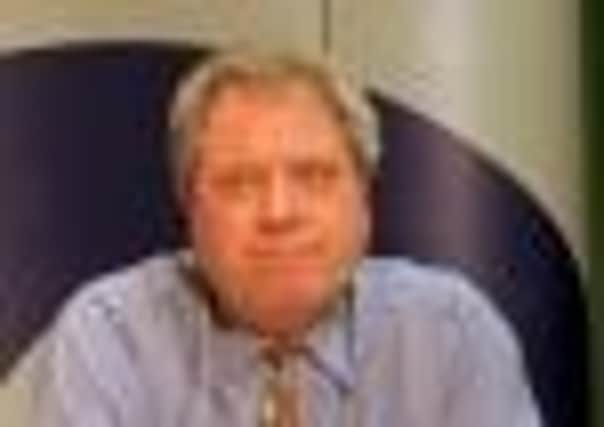Scottish independence: No chance a ‘yes’ vote would be end of SNP, says Jim Sillars


Stephen Noon yesterday asked whether Scots would still want or need an SNP” if independence is achieved.
His questioning of the Nationalist party’s future and purpose has provoked divisions within the SNP and the wider independence movement.
Advertisement
Hide AdAdvertisement
Hide AdWhile Mr Sillars praised the tone and most of the content of Mr Noon’s analysis of a “new world” post-independence, with the most significant dividing line in Scottish politics erased, he said it was impossible to” write off 50 years of history.
Mr Sillars, who left Labour before joining the SNP and winning the Glasgow Govan by-election for the Nationalists in 1988, said: “There is no chance of the SNP disappearing.“You cannot just forget 50 years of rivalry between the SNP and Labour.
“Also, the party has in that time developed an organisation, associations and friendships which won’t simply disappear. So it is wrong to say that the SNP will just fold and go away after a Yes vote.””
However, he agreed with Mr Noon that the Scottish Labour Party could be transformed by Scotland becoming independent.
In an article published in The Scotsman’s sister paper, Scotland on Sunday, Mr Noon, who worked as an adviser for Alex Salmond for almost two decades before becoming chief strategist of the Yes Scotland campaign, described a “new world where the constitution would no longer dominate Scottish politics and supporters of the different parties could end up giving one or both of their votes to other Scottish parties.
He suggested there could be a Labour/SNP coalition and speculated that the Tories could start afresh in Scotland.
And he went as far as to suggest an independent Scotland might have no need for the SNP.
His comments also provoked fierce criticism from another major figure from the SNP’s past, independent Lothians MSP Margo MacDonald, a former SNP member who won the Glasgow Govan by-election in 1973 but was forced out in 2003 after she fell out with the leadership.
Advertisement
Hide AdAdvertisement
Hide AdMs MacDonald described Mr Noon’s comments as “stupid”,” adding that for “a so-called strategist he displays an absolute ignorance of timing”. She said: “His comment is stupid beyond belief. His timing is all wrong.”
She added that the questioning of the SNP’s future showed the weakness of the Yes campaign for independence, in that the campaign and the party had failed to deal with the substantive issues, such as the economy, currency, EU membership and defence.
“He [Noon] is looking at the icing of the cake before we even know what the composition of the cake is,” she said, claiming that his comments were symptomatic of the problems faced by the SNP under Mr Salmond’s leadership in putting the case for independence.
Mr Noon has worked for the SNP for most of the past 18 years – for a long spell in London.
The former floating voter joined the party because of his belief that gaining independence was “essential if we are to create a more successful and fairer Scotland”.
He wrote: “But, after a Yes vote in 2014, that position is transformed. In 2016, Scottish politics will be freed from the constitutional question. The issue that has dominated political discourse for at least 50 years will be no more.
“In this new world, with the most significant dividing line in Scottish politics erased, independence-focused SNP-ers could safely choose to give one or even both their votes to Labour (or Green or Lib Dem), and unionist Labouristas could happily give one or both votes to the SNP.
“While for some this thought will have them spluttering into their porridge, most of us will recognise this as a real opportunity for a fresh start for Scottish politics, and for Scotland.”
Advertisement
Hide AdAdvertisement
Hide AdMr Noon argued Scotland’s new direction could be truly mapped out with the first election to an independent Scottish Parliament in 2016.
He wrote: “What of the party of independence? Will Scotland still want or need an SNP?
“We will have a multitude of coalition choices, including a currently inconceivable Labour and SNP partnership.”
Political opponents were quick to dismiss the chance of the SNP disappearing.
Scottish Conservative deputy leader Jackson Carlaw said: “Let’s not kid ourselves that Alex Salmond and the SNP would just fade away after the referendum vote, no matter the result.””
But Scottish Labour constitutional spokeswoman Patricia Ferguson said: “Given this government has ground to a halt and seems out of ideas, and that most Scots reject their core policy of independence, many people will be asking what is the point of the SNP now?”
An SNP spokeswoman said: “The SNP will continue to work hard, now and in an independent Scotland, to earn the trust and support of voters in Scotland. We take no vote for granted now or in the future.”